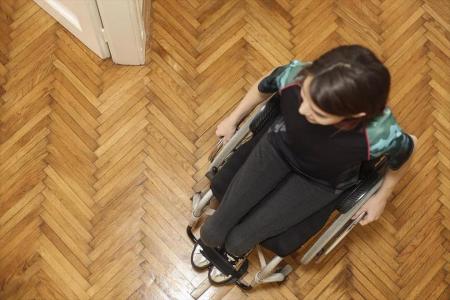A rare disease stole this woman's independence
Ms Aminah thought it was just age slowing her down.
Diagnosed with Parkinson's Disease in 2018 after experiencing slow walking and stiff movements, she never imagined it would escalate into something far more debilitating – a rare neurodegenerative disease called Progressive Supranuclear Palsy (PSP).
The warning signs were subtle at first. Four years before seeing a neurologist in 2023, the 71-year-old, who wanted to be known as Ms Aminah, began experiencing balance issues and frequent falls.
Two months before her appointment, she fell more than five times, bringing her fall count to 26, forcing her to rely on a walking aid.
Adding to her woes, Ms Aminah faced increasing difficulty walking down stairs due to vision problems. Her concerned family installed a stairlift to prevent further accidents.
Three years prior, bradykinesia – slowness of movement – had begun to significantly impact her daily life. Simple tasks became monumental efforts as her movements slowed to a crawl.
She describes a chilling "freezing sensation", her body stiffening when trying to rise from a seated position.
Adding to her physical challenges, Ms Aminah lost her sense of smell and struggled to chew and swallow. Even a prescribed regimen of 25/100 milligrams of carbidopa/levodopa failed to control her escalating symptoms.
Two years before her specialist visit, tremors and motor problems arose. What began as a slight tremble when holding a cup of water escalated until Ms Aminah needed assistance with even the simplest daily tasks.
The combination of balance issues, poor vision, and tremors ultimately robbed her of her ability to drive.
Her family noticed her memory deteriorating a year before her appointment. Ms Aminah would frequently misplace items and struggle to recall appointments.
Eight months prior, she exhibited micrographia, the characteristically small handwriting often linked to Parkinson’s disease.
Just three months before seeing the specialist, a new symptom emerged – numbness and a painful "needle pricking" sensation in her legs, worsening with prolonged standing or walking.
Despite her ordeal, physical examination revealed normal blood pressure across various positions. However, with a BMI of 40, Ms Aminah was overweight.
Cognitive assessment tests revealed a concerning drop in her Montreal Cognitive Assessment (MoCA) score from 25/30 to 22/30 within two months, signifying mild cognitive decline.
Her speech became slow and expressionless, her steps short and shuffling, with minimal arm movement. Nerve examination revealed muscle tension problems in her body and lower limbs.
Worryingly, she displayed vertical gaze palsy, an inability to look down properly.
This cascade of symptoms led to the diagnosis of Progressive Supranuclear Palsy (PSP). To rule out other possibilities, an MRI and ultrasound were conducted, revealing no signs of stroke or internal bleeding. Blood flow examination of her vertebral artery returned normal.
Ms Aminah's story is a poignant reminder of PSP's devastating impact. Early diagnosis and treatment are crucial in managing symptoms and providing support.
Raising awareness, especially among family members who play a vital role in caregiving, is paramount in the fight against this debilitating disease.
Get The New Paper on your phone with the free TNP app. Download from the Apple App Store or Google Play Store now



